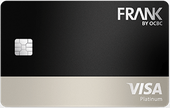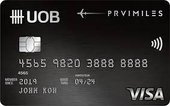Who are Visa credit cards suitable for?
Visa credit cards cater to various lifestyle needs and preferences:
- Frequent travellers. For those who love exploring new destinations, cards with travel rewards are a perfect fit.
- Cashback enthusiasts. If saving on everyday expenses is your top priority, cashback cards should be on your radar.
- Rewards collectors. For those who love accumulating points to redeem vouchers and gifts, rewards-based credit cards will probably be on your list.
- Shoppers. Online and offline shopaholics can benefit from exclusive discounts and perks of having a shopping-focused Visa card.
What to compare for Visa credit cards
When comparing different credit cards, consider these essential factors:
- Interest rates. How much will the card cost you in the long run if you have a balance on it? Look at the annual percentage rate (APR) and other fees.
- Rewards. Which credit card rewards program will let you enjoy the maximum benefits based on how you spend from month to month?
- Annual fees. How much will you be charged yearly for using the card? Some cards have a waiver, while others don't.
- Foreign transaction fees. If you're a globetrotter, it's essential to understand how much you'll be charged for overseas spending. Some cards have free foreign transactions.
How to compare Visa credit cards
Follow this simple step-by-step process for a seamless comparison:
- Determine your needs. Start by assessing your spending habits, preferences and financial goals.
- Research the options. Explore the various Visa credit cards available in the market and shortlist the ones that align with your requirements and income.
- Understand the fees. Analyze the relevant fees, including annual fees, interest rates, and foreign transaction charges.
- Compare the rewards. Gauge the value of different rewards systems and choose the one offering maximum benefits based on your spending pattern.
- Review additional perks. Consider additional features such as insurance coverage, concierge services and airport lounge access.
Pros and cons
Pros
- Wide acceptance. Visa credit cards are accepted globally, making it convenient for your overseas spending.
- Flexible rewards. With card options catering to different needs, there's a Visa card to suit most needs.
- Additional perks. Extras like insurance coverage, concierge services and airport lounge access enhance the overall card experience.
Cons
- Might be less appealing than Amex. There are many Visa credit cards with rewards, but their earn rate may not be as good as what you can get with an Amex card.
- Annual fees. Many cards come with yearly fees, adding to your overall costs.
FAQs
What is the difference between a Visa credit card and a debit card?
A Visa credit card allows you to borrow money from the bank to make purchases, whereas a debit card uses your own funds in your linked bank account. Credit cards offer various reward programs, but they often come with higher fees and interest rates.
Is Visa better than Mastercard?
In terms of their acceptance, they are roughly the same with Visa typically being accepted where Mastercard is — especially overseas in Europe, USA, Australia, etc. The mix of offers available between the two is comparable.
Is Visa better than Amex?
Visa is accepted more widely than Amex, especially outside Singapore. That's worth bearing in mind if you travel a lot. In terms of their various welcome offers and rewards, Amex are generally more competitive, but there can be standout Visa offers too.







